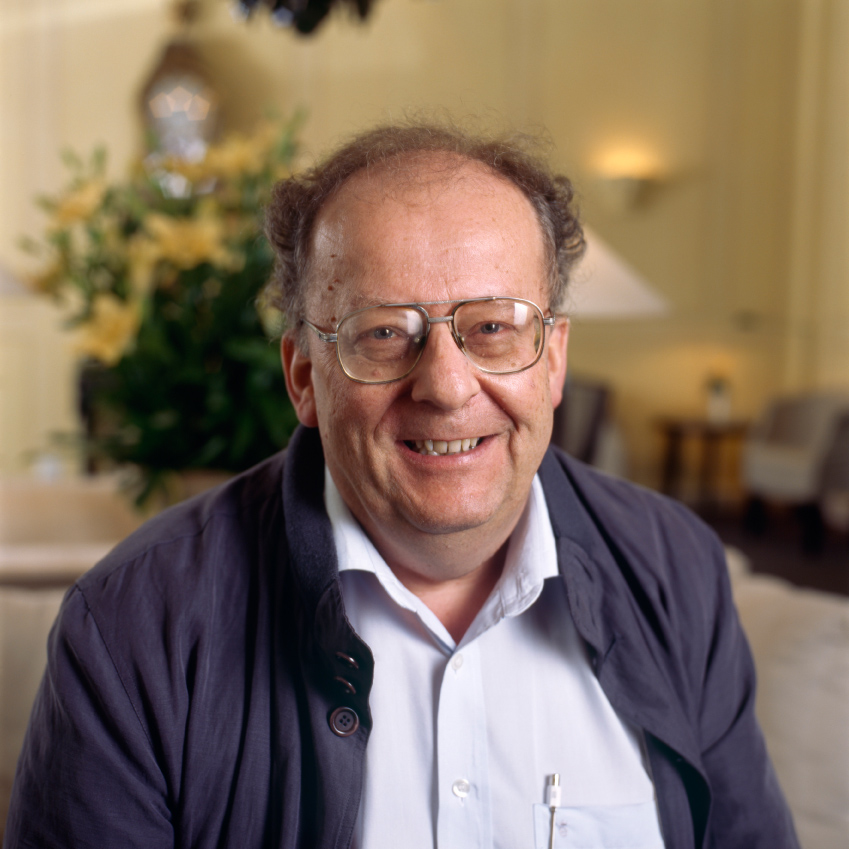Why Beat Richner didn’t get a Nobel Peace Prize

Beat Richner, M.D., died on 8 September 2018 after a short and serious illness. Countless Swiss, Cambodians and humanitarian committed mourn the loss of a unique doctor and patron for more peace, justice and human dignity. The University of Zurich awarded him a honorary doctorate, many more awards he received for his magnificent and worldwide unique work. Moreover he had a great number of sponsors who admired him and his work and saw the humanitarian tradition of our country realised through his activities. If you look at his achievements and commitment, you wonder why he was never nominated for a Nobel Prize. This is due to his logical and consistent work. He was not “everybody’s darling”.
In spring 2017 Beat Richner made the headlines for once because of a completely different matter. A mysterious, quickly progressing disease of the brain forced him to leave Cambodia and to return to Switzerland to seek medical treatment. Before that, Dr Richner was heard whenever he collected money with his cello concertos for the care of children and mothers in his hospitals in Cambodia, or he could be heard on the radio, he was seen in the Swiss National Circus “Knie” and so on. His travels through Switzerland were primarily for the purpose, as he himself emphasised, of finding support for his projects and the care of the children. Richner lived very modestly and unselfishly and drew his power and energy solely from his successes which proved him and his ideals right. A successful treatment of a child affected with tuberculosis could please him just the same as the establishment of a whole treatment centre. His performance only in dealing with finances was almost incredible: With an annual budget of only 42 million Swiss Francs, its hospitals were able to treat and care for four-fifths of all Cambodian children, mostly free of charge!
Beat Richner demonstrated the world how donations can benefit the needy without losses. All the money donated by countless Swiss people, institutions and charitable organisations flowed carefully and without expensive “processing fees” or the like to Cambodia into its three hospitals. In contrast to multinational organisations where donated money often oozed away in the administration he showed the world that help can and has to get along without a lot of bureaucracy.
Doktor Beat Richner alias Beatocello had not been himself if he had not openly and fearlessly expressed his criticism of certain UN-organisations and politically responsible persons. Therefore the assailed punished him with condemnation, slander and defamation. If he hadn’t have a strong moral backing and great admiration by the Swiss population, officials had much more severely attacked the engaged paediatrician and had tried to dry up the flow of donations. He didn’t shy away from criticising the WHO directly and distinctly. Despite of its authority and power the WHO couldn’t effectively run against.
In his criticism published at different places worldwide with the ambiguous headline “WHO is wrong and WHAT is wrong?” he pointed up the proceeding of the world health apparatus with clear words: a meningitis of a child in Europe is treated with the expensive antibiotic Ceftriaxon. Why, so his criticism, a Cambodian child shouldn’t get exactly the same medication? Why had the WHO for example Chloramphenicol on her list of recommended drugs, which was taken off the market in the industrial countries because of proven inefficacy and dangerous side effects? Richner was a strong advocate of his responsible conviction that there must be no “simple medicine for simple people”, as the WHO propagated. “An illness is always the same, be it in Europe or in Cambodia”, he used to say. And because this was so, the illness had to be treated in Cambodia exactly the same way as in Switzerland. With this medically justified logic, he attacked many aid organisations, which he also accused of letting enormous sums of donor money seep into their expensive administrative apparatus. His argumentation and his sense of justice were effective and reasonable for everybody. To avoid having to elaborate on it Swiss radio SRF in the broadcast “Echo der Zeit” of 9 September addressed Richner’s motiviation to accusations simply as “ideology”.
Precisely in these days WHO and other health organisations pointed out that tuberculosis is far from being under control. Richner had shown the world with his meticulous program of control and prevention of this serious and dangerous disease that it is very well possible to keep tuberculosis long term at bay. Certainly this was not possible without a great effort of staff and major gratuitous information campaigns for the population. It is the wish of the parents that their infected children become healthy. As physician and helper one has to respect this deepest desire of the parents. This desire is the basis of a reliable relationship with the treating physician and the hospital, which ultimately guarantees that you will be able to go through months of consistent treatment without having to interrupt it.
Richner has not only understood this but he has proved the world that it is possible and thereby declared his struggle against fatalism.
Richner, with his great commitment, embodied much with which we Swiss identify: selfless commitment, humanitarian aid, objective criticism - without concessions to today’s mainstream. The fact that Beat Richner did not receive a Nobel Peace Prize speaks for him. The French Enlightenment philosopher Claude Adrien Hélvétius described this circumstance with the words: “It is impossible to carry the torch of truth through a crowd without searing the beard of one or the other”. •